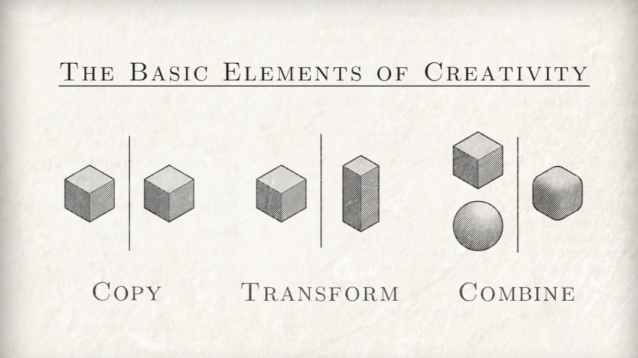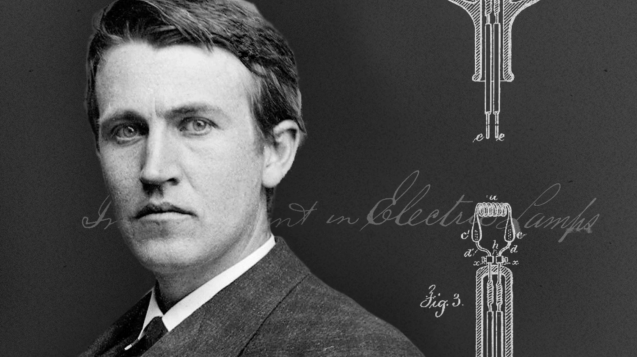What Gutenberg has to do with Thomas Edison and the secret sauce of Apple.
Kirby Ferguson’s excellent Everything is a Remix project is, as I’ve previously written,
one of the most important efforts to illuminate the mechanisms,
paradoxes and central principles of creative culture in modern history —
an ambitious four-part documentary on the history and cultural
significance of sampling and collaborative creation, reflecting my own
deep held belief that creativity is combinatorial. Today, Kirby releases the highly anticipated third installment in the series, titled The Elements of Creativity.
Enjoy — this is a cultural treasure:
The most dramatic results can happen when ideas are combined. By connecting ideas together, creative leaps can be made, producing some of history’s biggest breakthroughs.” ~ Kirby FergusonFrom derivative work in art to incremental innovation in technology, Kirby tells the lesser-known stories of history’s greatest innovators to illustrate the point that creativity builds on what came before rather than crystallizing from thin air under the touch of a mythical muse.

Thomas Edison did not invent the light bulb — his first patent was “Improvement in Electric Lamps,” but he did conduct trials with 6,000 materials for the filament until he created the first commercially viable bulb. Apple didn’t invent the first desktop computer — it copied Xerox (oh, the irony…), but was the first to combine the computer with the household appliance, sparking the personal computing revolution.

What started it all was the graphical interface merged with the idea of the computer as household appliance. The Mac is a demonstration of the explosive potential of combinations.” ~ Kirby Ferguson

Creativity isn’t magic: it happens by applying ordinary tools of thought to existing materials. And the soil from which we grow our creations is something we scorn and misunderstand even though it gives us so much — and that’s… copying.” ~ Kirby Ferguson
No comments:
Post a Comment